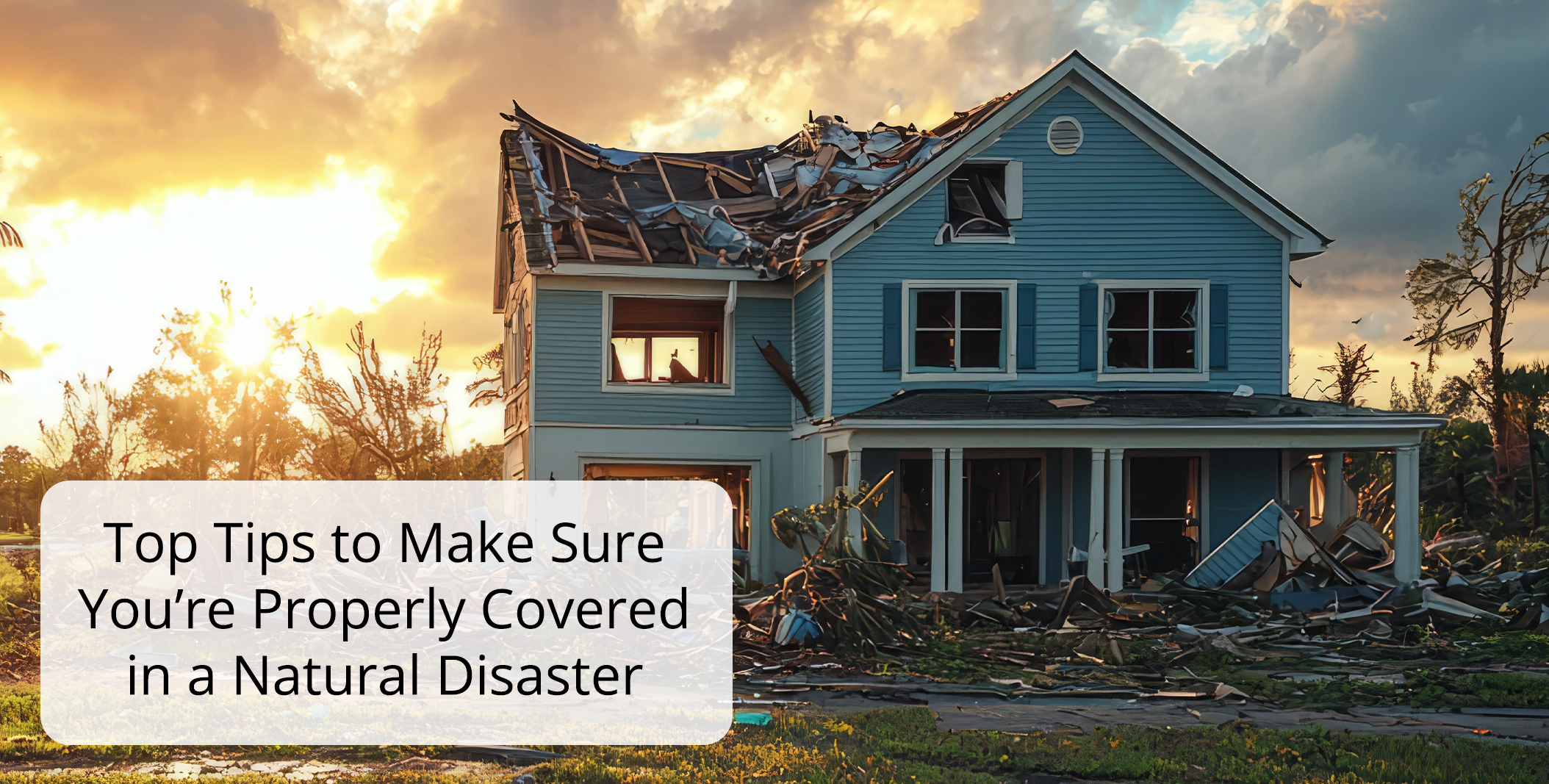
Natural disasters like hurricanes, wildfires, floods, and earthquakes can strike with little warning, causing extensive damage to homes and properties. Ensuring that you’re adequately covered by your insurance policy is critical to protecting your financial future. Many homeowners assume they are fully covered, only to discover gaps in their policy after a disaster.
This blog outlines top tips to make sure you’re properly covered in the event of a natural disaster.
Most standard homeowners insurance policies provide coverage for common risks, but not all natural disasters are included. Here’s what’s typically covered:
What’s Usually Not Covered:
The type of natural disasters you’re likely to face depends on your geographic location. For example:
Knowing your local risks will help you determine the specific coverage you need.
If your standard policy doesn’t cover specific disasters, consider these options:
Adding these policies ensures comprehensive protection tailored to your risks.
Your coverage limits should reflect the cost to rebuild your home and replace your belongings, not just your home’s market value.
If your current limits are too low, adjust them to avoid being underinsured.
When filing a claim, your reimbursement depends on how your policy values your property:
Opt for replacement cost coverage whenever possible for better financial protection.
A detailed home inventory helps you document your belongings and simplifies the claims process. Include:
Store your inventory digitally or in a safe place that’s accessible during a disaster.
If a natural disaster renders your home uninhabitable, additional living expenses (ALE) coverage can help. ALE covers:
Check your policy to ensure you have adequate ALE coverage and confirm any time or dollar limits.
Some policies include separate deductibles for specific natural disasters, such as hurricanes or earthquakes. These are often calculated as a percentage of your home’s insured value.
Understand these deductibles and budget for potential out-of-pocket costs.
If you run a home-based business, your homeowners insurance may not cover business-related equipment or lost income. Consider:
Your insurance needs change over time. Review your policy annually or whenever you:
Discuss these updates with your insurance agent to ensure your policy remains current.
Taking proactive steps to reduce damage can sometimes lower your premiums. Examples include:
Check with your insurer to see if these measures qualify for discounts.
An independent agent can help you:
Their expertise ensures you’re not overpaying for unnecessary coverage or leaving yourself exposed to risks.
Natural disasters can strike at any time, but being properly insured can give you peace of mind and financial security. By understanding your policy, addressing gaps, and staying prepared, you can protect your home, belongings, and livelihood against nature’s unpredictability.
If you’re unsure about your coverage, consult an insurance professional today. With the right protection in place, you can weather any storm and rebuild with confidence.
Disclaimer: The information provided in this article is for educational purposes only. It is important to consult with a qualified insurance professional for advice tailored to your specific circumstances.